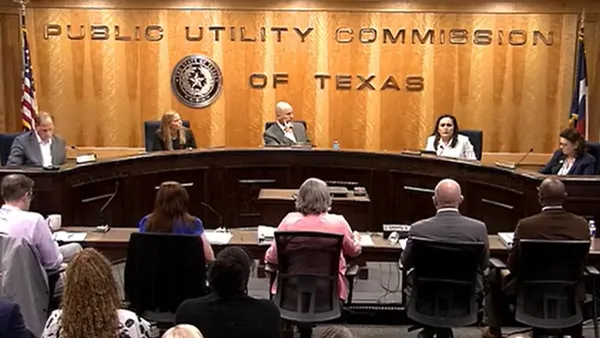Dive Brief:
- Senate Bill 1456, which allows regulated electric utilities to impose a bill surcharge on customers who install rooftop solar panels or small wind turbines, passed the Oklahoma House of Representatives on Monday 83-5 with no debate. It passed the Senate last month. Gov. Mary Fallin is expected to approve it.
- Supported by Oklahoma Gas and Electric Co. (OG&E) and Public Service Co. of Oklahoma (PSO), the state's major electric utilities, but opposed by renewables advocates, the bill sets up a process at the Oklahoma Corporation Commission (OCC) to establish a separate customer class and monthly surcharge for distributed generation (DG). As many as ten previous debates across the U.S. have gone against similar proposals by utilities.
- The surcharge is to be imposed by the end of 2015. It will not apply to customers who already have installed DG systems or to participants in electric cooperatives not regulated by the OCC. Legislators overwhelming agreed with utility representatives that the surcharge is needed to prevent non-DG-owning ratepayers from bearing the largest part of the burden for infrastructure costs prorated by electricity consumption on customers’ bills.
- DG advocates argued the burden on non-DG-owning ratepayers is not significant because the number of OG&E and PSO customers who have DG systems is small. The bill, they said, protects dwindling utility profits as DG use grows rapidly and utilities fail to accommodate it with new business models.
Dive Insight:
This could be the first complete defeat for solar advocates in their fight against utility efforts to recover costs lost to DG use. It remains to be determined how the surcharge amount set up by the OCC will affect solar growth in Oklahoma.
The Arizona Corporation Commission last year approved a similar surcharge but, at $0.70 per kilowatt, was viewed by solar advocates as low enough to not stop industry growth.
“A $0.70 per kilowatt charge will hamper the industry,” Sunrun VP and The Alliance for Solar Choice (TASC) President Bryan Miller told this reporter at the time. “We cannot sustain a $1.00 per kilowatt charge.”













